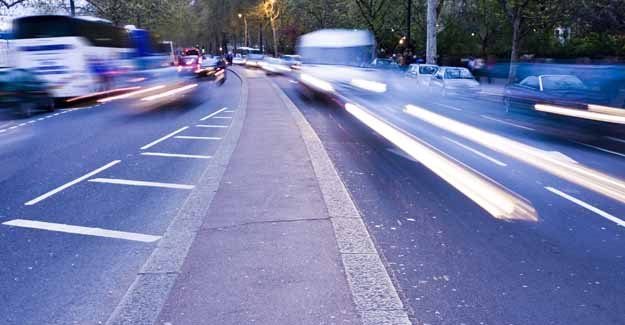On the road to ruin
THE TRUE COST OF MOTORING FOR BRITAIN’S LOW INCOME FAMILIES
Half of the lowest income households* now own a car and have to spend 17p of every pound earned on motoring.
Any attempt by the government to squeeze more money out of the driving public would have a significant impact on those least able to pay.
These are amongst the conclusions of ‘Low Income Motoring in Great Britain’, a report commissioned by the motoring charity, the RAC Foundation, and published today.
It shows that those in the lowest earning fifth of car owning households pay more as a proportion of their income on buying and running a vehicle than any other section of society.
The research reveals that the least wealthy already drive the oldest and cheapest vehicles, which makes it nearly impossible for them to ‘trade down’ during times of financial hardship.
Commenting on the findings, Professor Stephen Glaister, Director of the RAC Foundation, said:
“Running a car is absolutely vital for the majority of people in this country. And whilst the wealthier members of society spend more on motoring in absolute terms, it is the poor who pay most as a proportion of their incomes.”
“Whilst ministers are urgently looking for ways to fill their financial black hole, they must resist the temptation to raise motoring charges through the roof. These already unfairly burden the least well-off, and increases will affect them disproportionately. Given how much those on the lowest incomes spend on cars, and how reliant they are on them, it would be grossly unjust to penalize them further.”
The report also shows that:
• The rate of car ownership in low income households has gone from 5% in 1960 to 49% in 2008 – a near ten-fold increase.
• A person in a car owning household makes a third more journeys than those living in a household without one.
• There is more car-sharing amongst lower income groups.
• 57% of those in the lowest income households (in both car owning and non car owning) use surface rail less than once a year.
• Owning a car reduces the difficulty of getting to the shops by two thirds.
• Access to health facilities is twice as easy for people in households with cars.
Professor Glaister continued:
“Car ownership has democratized the nation, increasing mobility and access to services for all. Yet, for some, it has come at a significant financial cost.”
“Given the high expenditure on cars, people might expect those on lower incomes to try and switch to public transport to save money. But for most this just isn’t feasible.”
“Car ownership is not an indulgence. It is a necessity. And the government must recognize this. For most people, most of the time, the car is the true form of public transport.”
ENDS
For more information, please contact:
Philip Gomm, Head of External Communications, RAC Foundation
[email protected] / 020 7747 3486 / 07711 776448 / 020 7389 0601 (ISDN)
Notes to editors:
The RAC Foundation is an independent charity dedicated to researching the mobility, economic, environmental and safety issues relating to motoring.
‘Low Income Motoring in Great Britain’ is authored by David Bayliss. It is available on request, or on www.racfoundation.org from the day of publication.
*Lowest income households refers to those in the bottom 20% of earnings.


